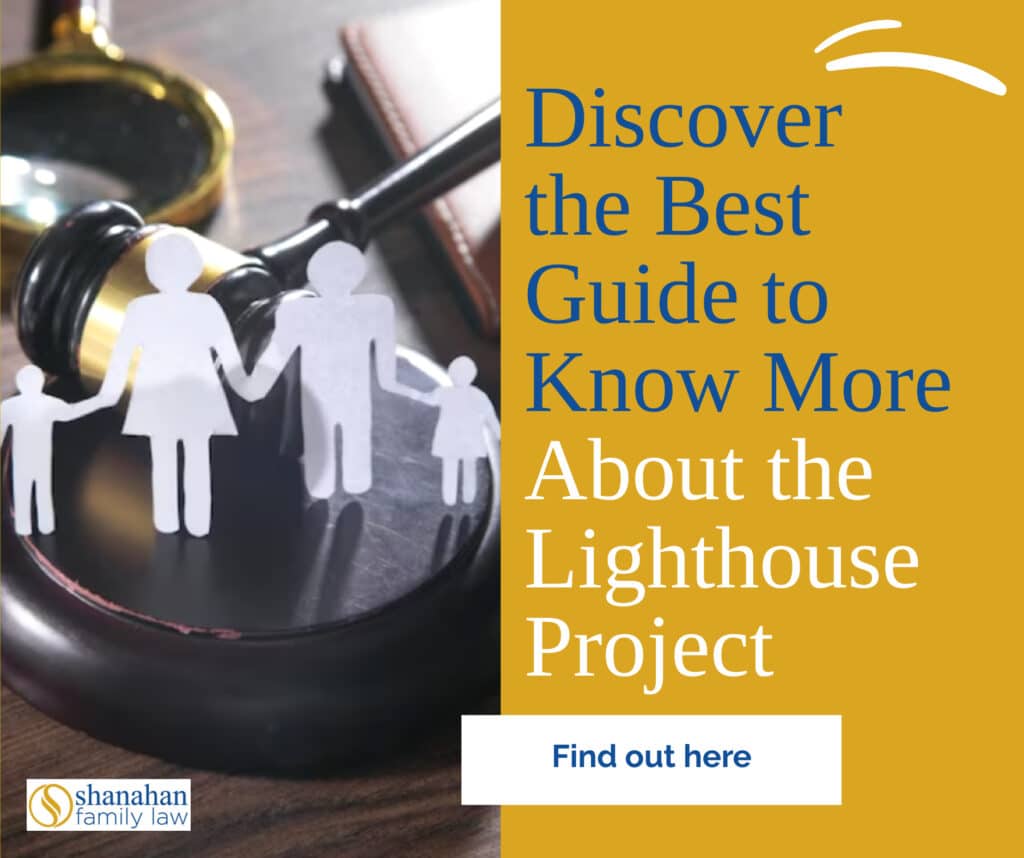Family Violence has become a plague on our society and is one of the reasons why the divorce rate in Australia is so high. It does not discriminate and comes in various forms, including manipulative behaviour, financial control, verbal threats or physical assaults.
The Australian Family Court has taken notice of the increased risk faced by members of our society. It has launched a new initiative called the Lighthouse Project.
Key takeaways 
- The Lighthouse Project aims to identify risk factors in family law cases and provide safety measures.
- The project is undergoing a limited rollout in Brisbane, Adelaide and Parramatta.
- The Lighthouse Project has three stages: risk screening, triage and inclusion on the Evatt List, if applicable.
- Risk screening assesses the potential for harm in domestic situations.
- Family law applicants may be directed to complete a questionnaire. This determines if the Court should provide support resources.
- Family counsellors review cases during triage to decide on the appropriate course of action. Cases are categorised as either low, medium or high risk.
- Low and medium-risk cases may be directed to family dispute resolution services or online safety planning.
- High-risk cases are appointed family counsellors. These counsellors will provide follow-up assessments and referrals to relevant services.
- The Evatt List applies to high-risk cases only and doesn’t cover all family law matters.
- Cases in the Evatt List follow a case management pathway from the initial referral to the trial date.
The Lighthouse Project
A lighthouse has always been a beacon of hope, guiding ships at sea to return safely home. One function of lighthouses was to provide a visible warning against shipping hazards, such as rocks or reefs.
The Lighthouse Project is a pilot program for parenting matters. It helps identify and manage the safety concerns of the parties involved in parenting matters.
The Pilot Program is rolling out in the Brisbane, Adelaide and Parramatta Registries of the Federal Circuit and Family Court of Australia.
This program has three stages: risk screening, triage, and, if applicable, a parenting matter can now go on a specialised Court list known as the Evatt List.
Risk screening
The risk screening process assesses the likelihood of harm from sources such as:
- Child abuse and neglect;
- Family violence;
- Mental health issues;
- Drug or alcohol misuse.
At the screening stage, a party can complete a confidential questionnaire through a secure online platform called ‘Family DOORS Triage’. There will be response reviews and referrals for health support and case management. Any information in the questionnaire is confidential. There’s no compulsion on the party completing the questionnaire to disclose any information. This confidentiality allows parties to feel safe in answering the questions truthfully.
Completing the risk screening helps the Court determine the best case management pathway. It will also assist in determining what additional support is necessary for you or your children.
Triage
Triage involves reviewing cases by family counsellors who direct the case to the appropriate pathway. The review will consider safety risks identified during the screening stage. The triage service classifies cases as either high, medium or low risk.
High, medium, and low-risk cases
High-risk cases receive a family counsellor appointment immediately. The counsellor will provide a follow-up. This involves a detailed assessment, safety and well-being plan, and referral to relevant services. The process occurs with the highest level of confidence.
The medium-risk cases receive online service referrals and online safety planning. Cases may pass to a case management pathway depending on their facts.
Low-risk cases are appropriate for court-ordered family dispute resolution to resolve matters. This is cost-effective and time-efficient.
The case management stage involves a collaborative approach from Registrars, Family Consultants and support staff with expertise in family violence and safety risks. This team supports a matter through the relevant case management pathway.
The Evatt List

When family units have been identified as high risk due to family violence and/or other safety concerns, their matter will go on the ‘Evatt’ List. The Evatt List is a specialist court list developed by the Courts. It is led by Judges and experts working with families with identified high-risk issues. Certain matters are not eligible for the Evatt list to keep the list clear for high-risk parenting-only cases. These matters include the following:
- Cases involving only financial and/or property orders;
- Child support only cases;
- Child maintenance only cases; or
- Contravention applications.
The focus of the list is to gather information early and provide intervention.
Evatt List case management pathway
- Within 5-10 days of referral, an Evatt Judicial Registrar will make preliminary orders after assessing a case’s eligibility for the list. The first court event occurs 6-8 weeks after a case’s inclusion. The Registrar will determine the appropriate approach for the case.
- In the next 10-12 weeks, the Judge or senior Judicial Registrar will consider urgent issues or interim applications. They will also determine the information needed to finalise the case through a settlement or trial.
- In 6-8 months, the Judicial Registrar will review the progress of any interim orders or dispute resolution outcomes. They will then identify the next case management steps and any possible settlement before trial.
- Within 10 months, the matter will go before a Judge to be listed for a Compliance Readiness Hearing (CRH). The CRH establishes directions for the trial and sets trial dates.
- The trial will commence within 12 months.
The project provides hope for those who have experienced family violence and wish to navigate the family law system safely.
For more information on the Lighthouse Project’s benefits to you or assistance with a Family Law matter, including Domestic Violence, the experienced Shanahan Family Law team can help.

